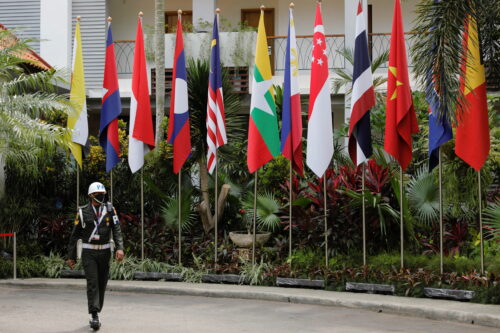Laiye: The Chinese AI company that wants to rule the chatbot world
With an infusion of $50 million, Laiye has ambitious plans to become the dominant vendor of RPA software and customer service chatbots to global clients.

Laiye (来也), an AI startup headquartered in Beijing, raised $50 million on April 21, 2021, in a C+ series funding round.
The company developed a personal assistant chatbot on WeChat named Xiaolai in 2015, and a digital chatbot platform called Wulai in 2017. Yet it is best known for RPA (robotic process automation), a type of AI software that develops bots to quickly complete repetitive workflow tasks, such as data entry, information retrieval, and bookkeeping.
Laiye was founded in 2015 by CEO Wāng Guànchūn 汪冠春, Gù Jí 顾及, and Hú Yīchuān 胡一川. Wang and Hu both previously worked for Baidu. The company made headlines in 2016 after securing a strategic partnership with Microsoft, one of the first Chinese AI tech startups to do so.
Leading backers include Ping An Global Voyager Fund (of Ping An Insurance Group, a financial services company) and Shanghai Artificial Intelligence Industry Equity Investment Fund. Other investors include Lightspeed China Partners, Lightspeed Venture Partners, Sequoia Capital China, and Wu Capital.
“Laiye aims to foster the world’s largest developer community for software robots and build the world’s largest bot marketplace in the next three years, and we plan to certify at least 1 million software robot developers by 2025,” said CEO Wang in an official statement (in Chinese).
RPA is a big part of the plans. During the pandemic, international interest in RPA technology soared as companies scaled back on labor costs, and investors are taking notice. On April 21, 2021, U.S.-based RPA company UiPath rose 23% in its NYSE debut.
Laiye’s RPA platform, UiBot, has been used to log invoices for a top Chinese pharmaceutical company and take stock of inventory at grocery stores. The company says it achieved an impressive 900% year-on-year growth.
Laiye says its growing customer base includes Deloitte, Microsoft, and KPMG. The most notable international project is an automated financial services and HR center for RAAS PAL, a Thai robotics company. Laiye’s RPA platform was used to complete 306,000 individual census registrations throughout southern China in 10 days, a task usually requiring door-to-door visits after work hours, while its Wulai product was used to create a 24/7 infant-care assistance bot (in Chinese) with the early child research company Wyeth, a Nestlé partner. The chat service is marketed to mothers in need of early childcare information at all hours of the day (perhaps a chatbot for dads will be developed someday).
With more companies than ever working remotely, outsourcing tasks to RPA technology is a trend that isn’t going away anytime soon. A study conducted by Gartner predicts that “90% of large organizations globally will have adopted RPA in some form by 2022,” with the RPA market “expected to grow at double-digit rates through 2024.”






